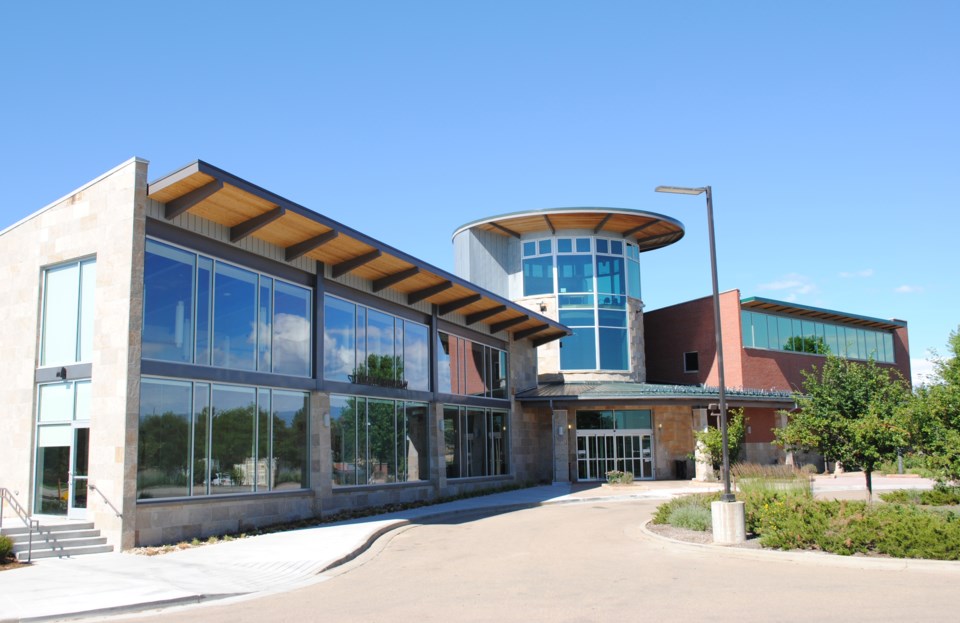The Voices of Change series continues, tomorrow, at the Longmont Museum at 7:15 p.m. with its third session. Participants will further engage in conversations regarding the lingering effects of slavery, Black Lives Matter and systemic racism in our daily lives.
The Voices of Change series is presented by the Longmont Multicultural Action Committee — which is a city council–initiated effort that inspires Longmont residents to take individual and collective action to promote cultural understanding, inclusion, and involvement, according to the city of Longmont website.
The first two talks in the Voices of Change series focused on the history of race and social justice in Longmont, according to Justin Veach, auditorium and events manager at the Longmont Museum.
The event will feature speakers Psychologist Dr. Robert Atwell, Filmmaker Katrina Miller, Director of CU Boulder’s Center for African & African-American Studies Reiland Rabaka, Ph.D., and Executive Director of NAACP Boulder County Annett James.
Atwell has offices in Denver and Boulder and has provided consultations on hundreds of legal cases, some including the impact of trauma and discrimination. Over the past 48 years, he has worked with a variety of populations including victims of abuse, substance abusers, delinquent adolescents, combat veterans and more, according to the Longmont Museum website
James is a mother, speaker and advocate for social and economic equality. Among many roles, James is s former chair of the United Black Women of Boulder Valley, she worked to promote the educational, economic, political and social welfare of Black people in Boulder Valley. Currently Annett’s spark is fixated on expanding the reach and vision of the NAACP Boulder County Branch, according to the Longmont Museum website.
Miller is a Colorado native who lives in Longmont. Born and raised in Colorado, Katrina Miller lives in Longmont. After obtaining her bachelor’s degree in Journalism at the University of Colorado-Boulder, Miller started her own video production business, creating content for establishments across Colorado, and eventually worldwide when a dramatic piece she edited aired on BBC world news for World Humanitarian Day in 2010. She gravitates toward projects with roots in social justice, that cultivate awareness, and celebrate marginalized populations. Miller believes that filmmaking is one of the best tools for educating and creating understanding amongst people in an intimate way that is personal to them, according to the Longmont Museum website.
Rabaka is the Inaugural Director of the Center for African and African American Studies at the University of Colorado Boulder, where he is also Professor of African, African American, and Caribbean Studies in the Department of Ethnic Studies. Additionally, he is a Research Fellow in the College of Human Sciences at the University of South Africa (UNISA). Rabaka is the author of numerous scholarly articles, book chapters, and essays, as well as more than a dozen books, including most recently Du Bois: A Critical Introduction (Polity, 2021).
Norma Johnson will moderated tomorrow night’s event and is a spiritual healer, writer-poet-playwright, performance artist, speaker and facilitator whose creative background informs her distinctive presentational form of racial justice activism.
“They're completely totally dedicated to social justice, and to moving things forward in terms of our society's understanding of the position African American people have been put into in this country, and the amount of healing that's left to be done,” Veach said.
Masking is required for the event however, there are currently no other restrictions in place, according to Veach. Registration is encouraged. For those who are unable to attend in person, the event is live-streamed On the Longmont Museum's Facebook page, On Longmont Public Media's website, through LPM Roku App for your Smart TV or On Channel 8/880 on your TV.
“My hope for these programs is that people come away with a greater sense of empathy and understanding for people who have suffered as a result of discrimination. And to learn what we can all do to help move things forward and to reduce that; to make Longmont and Boulder County, a better place for everybody,” Veach said.


